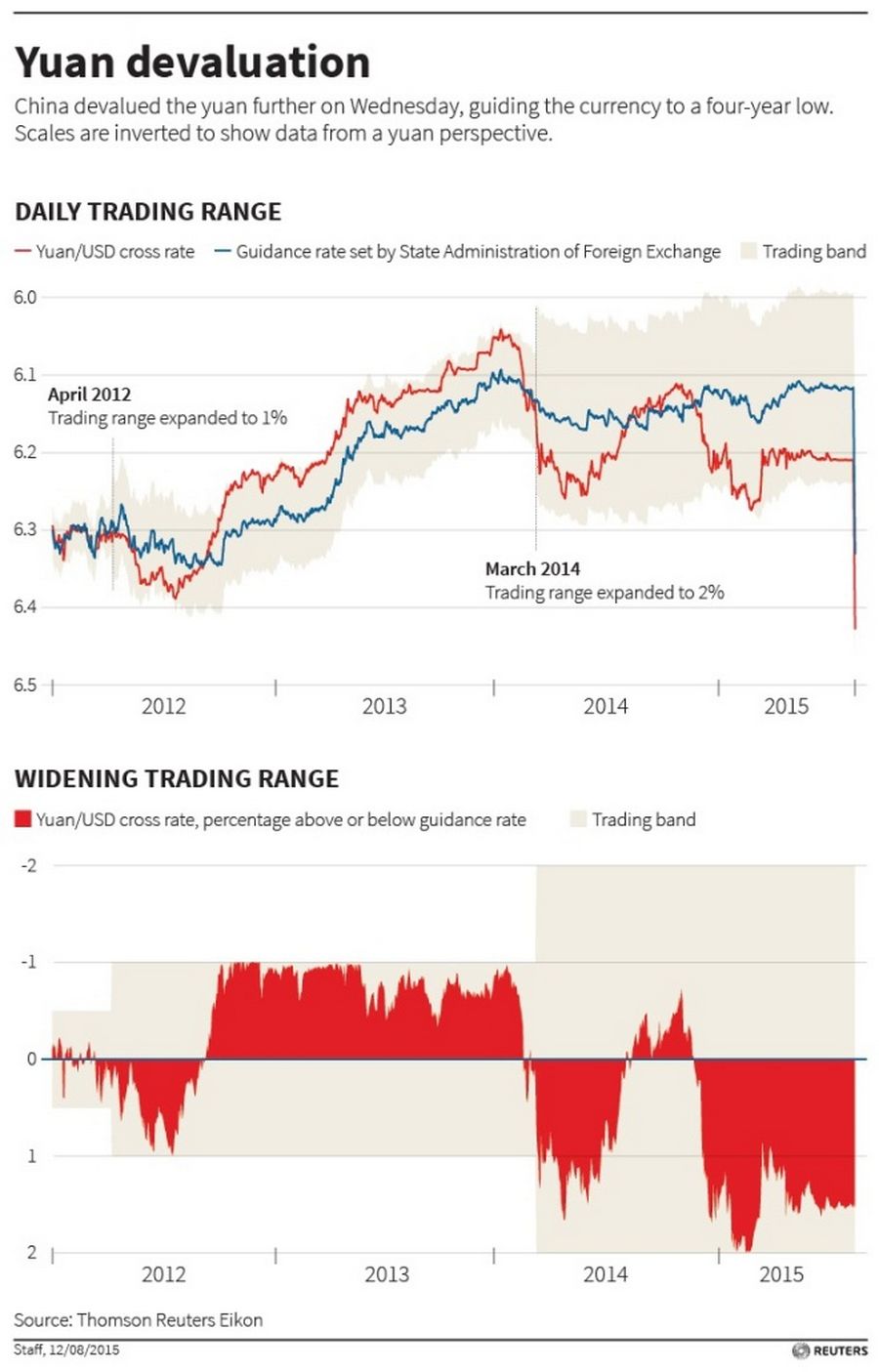China’s new exchange rate policy is guiding the currency down. The central bank has fixed the official price of the yuan against the U.S. dollar sharply weaker for the second day running. It’s the strongest signal yet that the country’s devaluation push is far from a one-off.
The day after the People’s Bank of China shifted to a more “market-oriented” system for setting the exchange rate, it had its first opportunity to show investors how the mechanism would work. The central bank had signalled that it would pay closer attention to the previous day’s closing market price when setting the official rate. In the end, however, it went further, fixing the rate at 6.3306 to the U.S. dollar – slightly weaker than the previous day’s close. Rather than following the market down, the PBOC appears to be leading it.
China’s shift serves multiple purposes. Authorities can point to demands by the International Monetary Fund to give market forces a greater role in determining the currency’s value. The IMF on Aug. 12 cautiously welcomed the switch, reinforcing the case for including the yuan in the basket of currencies that make up the IMF’s Special Drawing Rights later this year. The new exchange rate policy also tallies with the long-standing pledge by China’s leaders to let supply and demand play a “decisive role” in the economy.
But these are secondary considerations to what looks like the main objective, which is to ease the pressure on China’s economy by making the country’s sputtering exports more competitive. The PBOC insists that there is no basis for a sustained devaluation. Investors are paying little attention. In freely traded offshore markets the exchange rate is now almost 2 percent weaker than on the mainland. Asian currencies, stock markets and commodities prices are all anticipating further yuan weakness.
Given China’s slowdown, some weakening in the yuan seems justified. And shifting to a “market-driven” exchange rate does not mean giving up control entirely. With foreign exchange reserves of around $3.65 trillion, China has plenty of scope to sell dollars and shore up its own currency. But until the PBOC intervenes, investors will assume its new policy is pointing to a weaker yuan.
